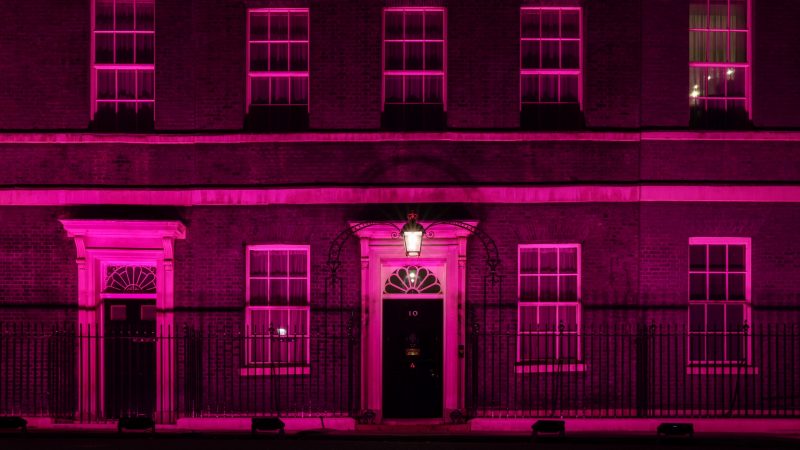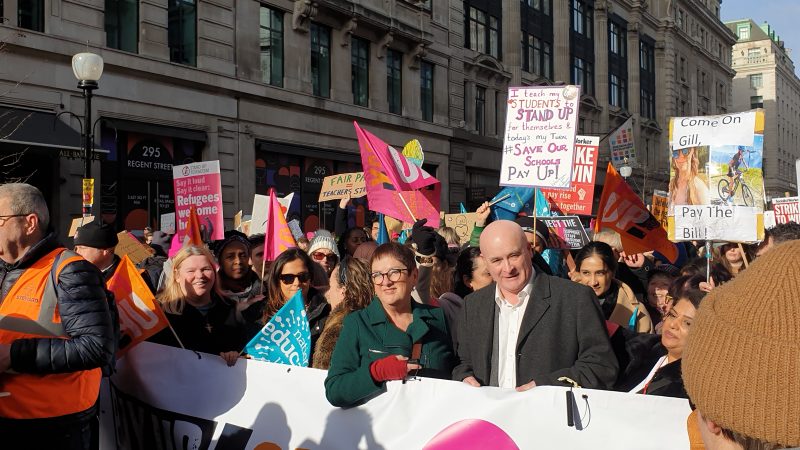Thangam Debbonaire: ‘Recovery from race riots can start us telling a new story for Britain if we choose’

The sight and sound of mass violent racism in our country does something visceral to me and I imagine to many/most people of colour living in Britain, whether born here or not.
It’s our country too. We work, run businesses, create jobs and wealth, pay taxes, work in public services, we volunteer and campaign. We create!
We want our country to work – for everyone. We should be involved in scripting what comes next. It was heartening to see so many people turn to peaceful resistance and outnumbering racists on the street. Now we have to craft a future.
In the immediate aftermath of the first days of these race riots I thought, yes, Keir, do start with a law-and-order response but think now about what’s next. Almost everyone hates riots and rioters, as polls confirm.
Whether you want to welcome refugees, reduce numbers or just feel something’s wrong, nobody thinks our immigration system works. We need a national discussion about (im)migration, the purposes and processes.
But riots cannot be the father of policy debates. This needs to be done in stages.
First, name racism as racism
Before our current (im)migration systems, we must examine the significance of race in modern Britain and we need to name and constructively challenge the multiple harms of racism. That’s necessary for us to work out how we see our future.
Law and order is necessary but not sufficient. There is a legacy question of trust.
Starmer, as DPP in charge of the CPS at the time of the riots a decade ago, is using his considerable strengths. But he leads a government that days ago rightly said the Tories left our criminal justice system in crisis.
They had to release some prisoners early to create capacity. In the general election Labour rightly campaigned for 13,000 more police after years of Tory cuts. People may hesitate to believe this response will be adequate.
Motives really matter
Whilst crime is crime, as ministers have said, our government needs to attend to motive. Calling behaviour mindless thuggery only gets you so far. If – as seems to be the case – the police and CPS are looking at aggravating factors and even anti-terrorism legislation, mindless is an insufficient adjective.
The law attends to motive, when hateful ideology have driven the acts. A political response needs to have this understanding at the heart. It is essential to show people of colour that our leaders understand the impact on us of racially motivated violence.
The front-line rioters may be unaware of the motivations of their online leaders or those who are there in person but wisely hang back and avoid arrest. But as readers of detective stories know, motive matters as well as means. Pogroms don’t come out of nowhere. The fire thrown at the hotel for asylum seekers in Rotherham should serve as a chilling warning.
So where do we go from here?
The peaceful resistance was a good start. Now, do we want our country to change? Yes, being part of changing our country for the better is something I believe most of us are well up for.
For change to be sustainable and to give hope to a weary population feeling nothing can change and they can do nothing about it, civil society and individual citizens have to be part of it.
We can co-author the new story, if our leaders want to make space for this, if they genuinely feel the value, without sub-contracting the responsibility for the structural changes. Painting a new picture can be a shared endeavour, and all the better for it. One which has multiple benefits for economic growth, for the UK’s place in this rapidly changing world.
We have huge challenges, not least climate change. We need to crank up the sluggish economic growth and low productivity which have so limited our capacity to meet these challenges. To do this we need everyone’s talents to thrive.
Diversity, Equality and Inclusion is essential – but where’s the vision?
Racism and sexism hold people back from developing our full potential, from participating in civic life and being part of the change the Labour Party campaigned on.
I’d like our government to be asking at every stage: where are the women, where are the people of colour, where are working class people? Technically I’m arguing for full integration of the diversity, equality and inclusion agenda I’m passionate about. But that sounds so policy-speak.
The Harris-Walz narrative offer us hints of an alternative. Naming Trumpery as “weird” and using the language of “win” to mean far more than electoral victory is powerful. They draw us in, make us smile and give us badly needed hope.
Taking on authors of hate speech hiding behind cocktail umbrellas will be difficult. Some will see them as martyrs, their voices enhanced as Donald Trump’s seemed to be when Democrats called him a law-breaker.
The rejection of Modi’s BJP by Hindus in South India in the recent Indian elections show us people can and do reject a leader who thrives on division.
Seeing DEI as a tool for success for the country as a whole, for fairer division of the spoils (“what’s socialism for some is being a good neighbour to others” to quote Tim Walz roughly) and for individual prosperity as a result can provide primary colours for Keir’s vision for the future of Britain. We can paint it with him.
Govern in poetry, colleagues!
John McTernan recently urged Labour to govern in poetry, converting the usual trope of governing in prose into a powerful call to action. As Shadow Secretary of State for culture, I ended speeches with a call for us to “sing, dance, paint, write our way to a new, more prosperous and joyous story for Britain”.
I’m now on the outside, with a Robert Montgomery poem tattooed on my arm.
I call on my former colleagues to write their own poem, make it one of love and revolution (as Robert Montgomery’s is) and inspire us to write the future of Britain together.
Tattoos aren’t compulsory, my friends, but poetry should be. We are all with you!














